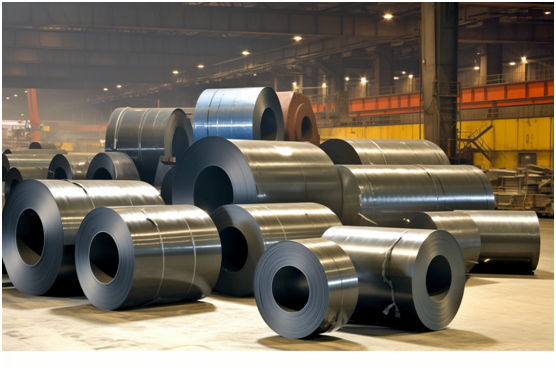On February 21st, Vietnam announced that it would impose three tiers of anti-dumping duties, namely 19.38%, 26.94%, and 27.83%, on steel products exported from China to Vietnam. On February 20th, the Trade Committee of the Ministry of Trade, Industry and Energy of South Korea held a meeting, launching a preliminary investigation into the "hot-rolled carbon steel and other alloy steel heavy plates" imported from China, and preliminarily determining that there was dumping behavior, claiming that the dumping had caused substantial damage to the domestic steel industry in South Korea.
Image Source:699pic.com
According to the document on the imposition of provisional anti-dumping duties issued by the Ministry of Industry and Trade of Vietnam on February 21st, Vietnam imposes different levels of anti-dumping duties on steel products exported to Vietnam by dozens of Chinese steel enterprises and related trading companies. The three tiers of anti-dumping duties are 19.38%, 26.94%, and 27.83% respectively. The anti-dumping duties will come into effect 15 days later, starting from March 8th.
Industry insiders said that this anti-dumping duty has a significant impact and involves hundreds of millions of US dollars. In 2024, China exported a total of 12.738 million tons of steel to Vietnam, and Vietnam is the largest destination for China's steel exports.
In 2023, Vietnam's crude steel production was 19.2 million tons, and its ranking among the world's major crude steel producing countries has been rising year by year, from 18th in the world in 2017 to 12th in the world in 2023. According to the Vietnam Steel Association (VSA), in 2024, the country's finished steel production is expected to reach 30 million tons, an increase of 7% year-on-year.
On February 20th, the Trade Committee of the Ministry of Trade, Industry and Energy of South Korea proposed to the Minister of Strategy and Finance of South Korea to impose provisional anti-dumping duties ranging from 27.91% to 38.02% on China. According to the preliminary ruling, the dumping duty rates for different enterprises are as follows: Baosteel 27.91%, Jiangsu Shagang 29.62%, Xiangtan Iron and Steel, Sinohydro International, and Xiamen International Trade Holdings 38.02%, and other suppliers in China 31.69%.
Heavy plates refer to steel plates with a thickness of more than 6 mm, which are applied in fields such as shipbuilding and construction. The South Korean government's decision to take provisional anti-dumping measures this time aims to protect its domestic steel, shipbuilding, and construction enterprises from impacts. This preliminary ruling has become the largest ruling in terms of the involved amount in South Korea's history.
According to the previous China-South Korea Free Trade Agreement, China's steel products exported to South Korea, including cold-rolled steel plates, hot-rolled stainless steel plates, and heavy plates, all enjoy zero-tariff treatment.
However, in recent years, with the gradual increase in China's steel exports to South Korea, it has caused dissatisfaction among the South Korean industrial community. South Korean steel enterprises and industry associations have long called on the government to take anti-dumping measures against imported steel. Data shows that South Korea imported 8.77 million tons of steel from China last year, reaching the highest value in seven years. South Korea is the second largest destination for China's steel exports, with the export volume second only to that of Vietnam.
